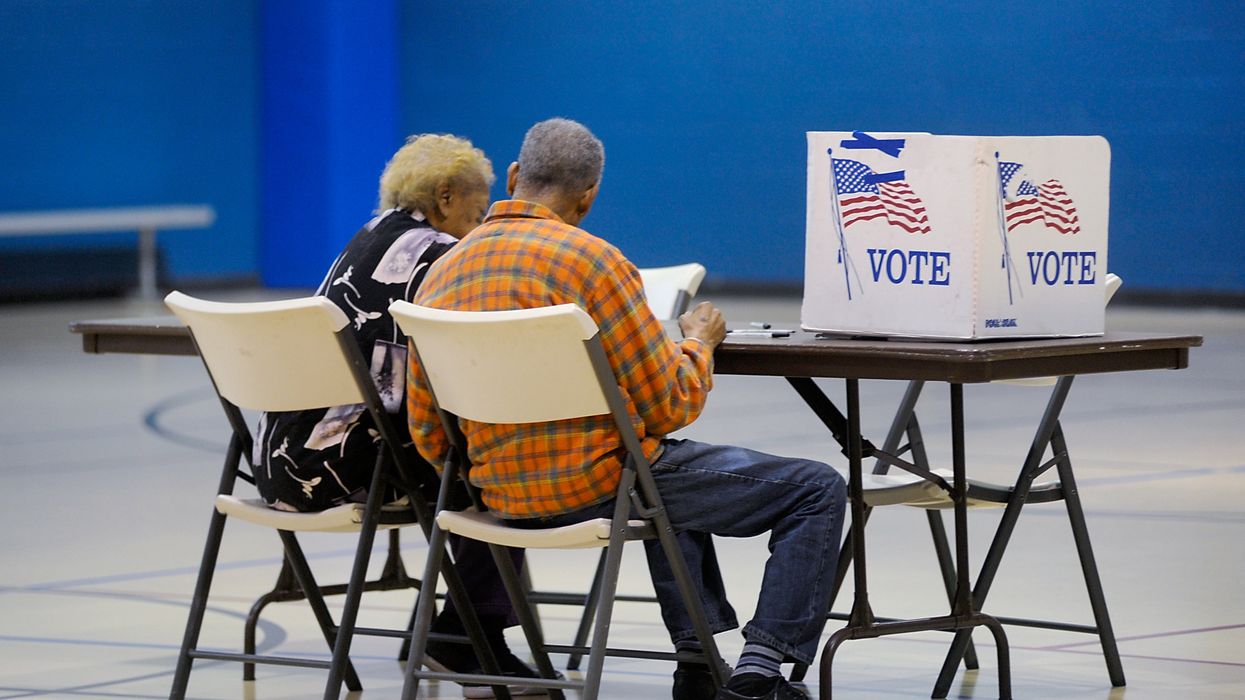Minnesota's limit on the amount of help one person may give to others in casting their ballots violates federal law and the state's constitution, the latest Democratic voting rights lawsuit alleges.
The litigation was announced Thursday by the party's House and Senate campaign committees. They filed it last week against the state's top elections official, Secretary of State Steve Simon, a fellow Democrat.
The suit joins more than a dozen others already filed in the early stages of the 2020 campaign by the Democratic Congressional Campaign Committee and the Democratic Senatorial Campaign Committee, part of an eight-figure attack on state laws they view as attempts to suppress turnout by black people and other minorities or to give Republicans some other political advantage.
Almost all the cases have been brought in places that are presidential tossups or have several hot congressional races In November.
While the Democratic nominee has carried Minnesota in every White House contest since 1976, President Trump came within 2 points (45,000 votes) of winning there last time and has vowed to contest it harder this fall.
The new suit is the second the Democrats have brought in the state. Last fall they sued in federal court challenging a Minnesota law that dictates the order of candidates on the ballot be the reverse of the results of the previous election. That means candidates of the Democratic-Farmer-Labor Party (as its uniquely known in the state) will be listed last this November, which the party argues puts it at a disadvantage.
The Minnesota law challenged by the newest suit states that a person may help no more than three voters complete in-person or absentee ballots. The intent of the law is to prevent efforts to manipulate the votes of elderly, disabled and non-English-speaking voters.
But the lawsuit says the statute directly violates the federal Voting Rights Act requiring that any voter needing assistance has the right to choose whomever they want as a helper. The Democrats also maintain the law presents a burden on the right to vote under the Minnesota Constitution.
Last year, Simon conceded at a state legislative hearing that the limit on helpers may not survive a legal challenge.
The suit argues the law places a particular burden on the large communities of Somalis and Hmong people from Southeast Asia who have settled in Minnesota.
"We should be working to increase access to the ballot, not restrict it," said Rep. Cheri Bustos of Illinois, the DCCC chairwoman.
Her group and its Senate counterpart, which recruit and help finance congressional candidates, have pledged to spend more than $10 million on their lawsuit strategy, which has so far been pressed in eight states: Arizona, Florida, Georgia, Michigan, Minnesota, North Carolina, South Carolina, and Texas. They have already scored a handful of wins, most recently when South Carolina officials agreed this week to drop a requirement that complete Social Security numbers be provided on voter registration forms.





















